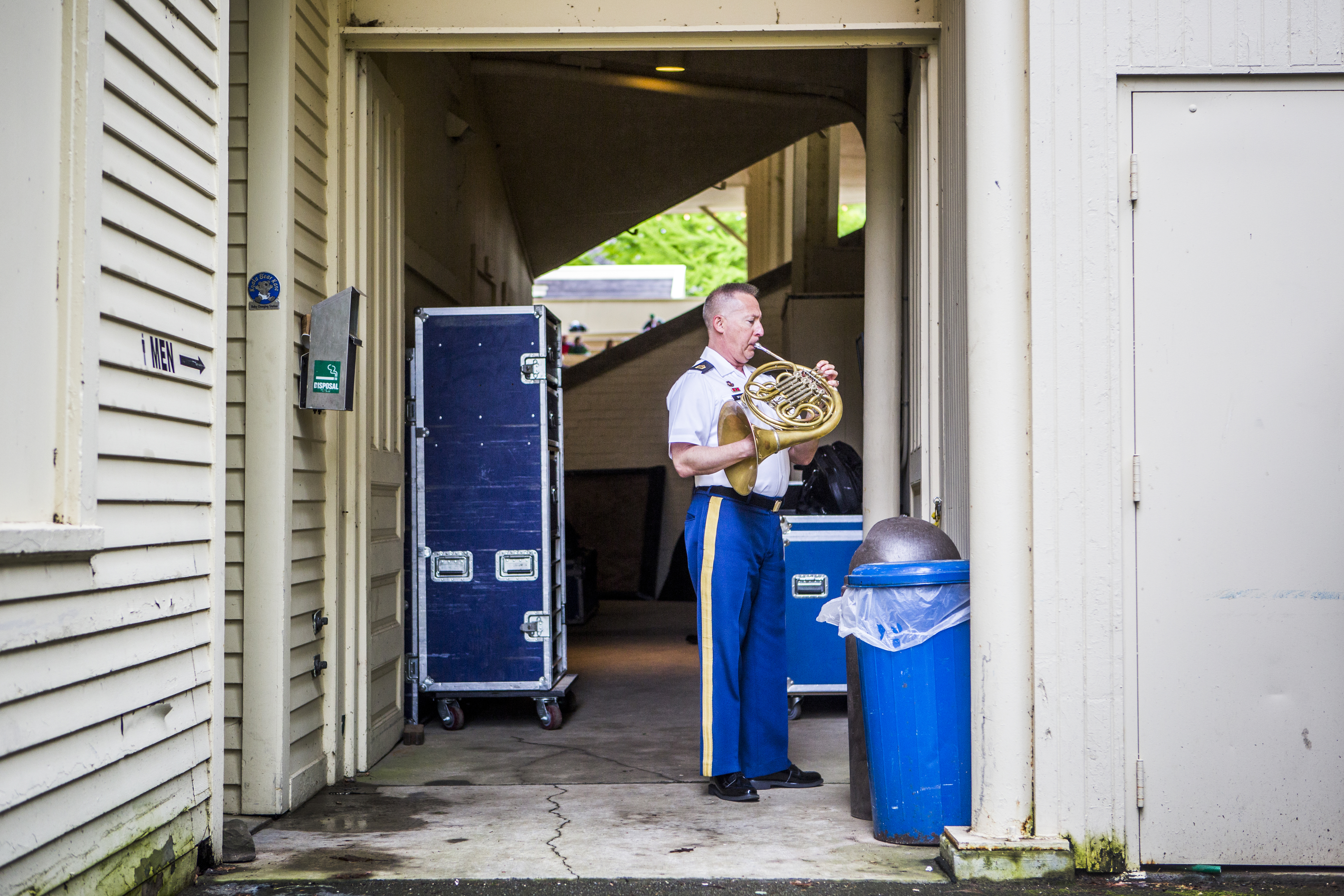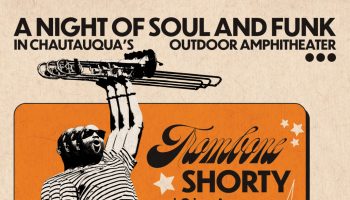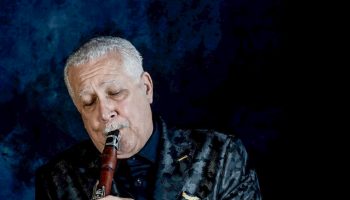The first time Master Sgt. John Lamirande came to Chautauqua Institution was 15 years ago, then as an audio and sound technician. Now 48, and after 30 years of service, Lamirande returns at the end of his career as one of four performers in the Six-String Soldiers, playing alongside the members of the U.S. Army Field Band and Soldiers’ Chorus.
“Having been to Chautauqua as a tech support person, and coming back as a musician, it’s one of the best venues in the country,” Lamirande said. “There’s nothing like Chautauqua.”

This will be the first time the Six-String Soldiers accompany the U.S. Army Field Band and Soldiers’ Chorus at Chautauqua, as they perform at 2:30 p.m. Sunday in the Amphitheater. In previous years, only the concert band and chorus visited.
Consisting of a banjo, mandolin, acoustic guitar and amplified acoustic bass, the Six-String Soldiers on the surface reflect a bluegrass ensemble, but Lamirande said they make a conscious decision to nurture a deeper, folk Americana sound, playing such songs as Arlo Guthrie’s “City of New Orleans” and Woody Guthrie’s “This Land is Your Land.”
Not era-specific, the Six-String Soldiers liken their unique approach to that of a crystal prism, inviting a broad musical spectrum ranging from The Civil Wars to The Lumineers, focusing and filtering the subject material through their particular vocals and instrumentation.
Customarily, when the U.S. Army Field Band and Soldiers’ Chorus play, they don their field uniforms, which consist of black breast coats, navy pants and shimmering yellow embroidery that singes the edges of their jackets and licks up their pant legs from ankles to waist. But that clean, immaculate look is only one particular application. Similarly, how members of an orchestra sometimes wear tuxedos, the Six-String Soldiers dress in camouflage Army Combat Uniforms.
“It’s like the uniform goes with the music,” Lamirande said. “It’s approachable, it’s recognizable, it resonates. When we play at a concert, if you’ve got a woman there whose son happens to be in Afghanistan, well, we look just like her son. So when people see us in this uniform, it’s representing any soldier. We play bedside at a veteran’s home, we’ll play a national anthem, but we always wear the combat uniforms because those are the people you’re representing.”
The Six-String Soldiers initially made themselves visible with their rendition of The Beatles’ “Here Comes the Sun.”
“[N]obody knew we were part of the Army Field Band. We were just four average guys,” Lamirande said. “We played a song out on a snow bank because our mission got canceled for the day. We went out and played ‘Here Comes the Sun,’ and it just took off.”
Lamirande said a personal goal of his is to be the “Glenn Miller of our time, to unite people through music,” recognizing the world’s far-from-temperate climate.
“As a soldier, I can’t be an activist. I can’t speak to political issues,” he said. “But I can do what I believe in, which is, of all the things Americans disagree on, we certainly agree on a lot. And playing good music, and enjoying a beautiful place like Chautauqua, is a great representation of the freedom that we have. To have a Sunday afternoon, playing music, that’s the thing we’re trying to preserve.”






